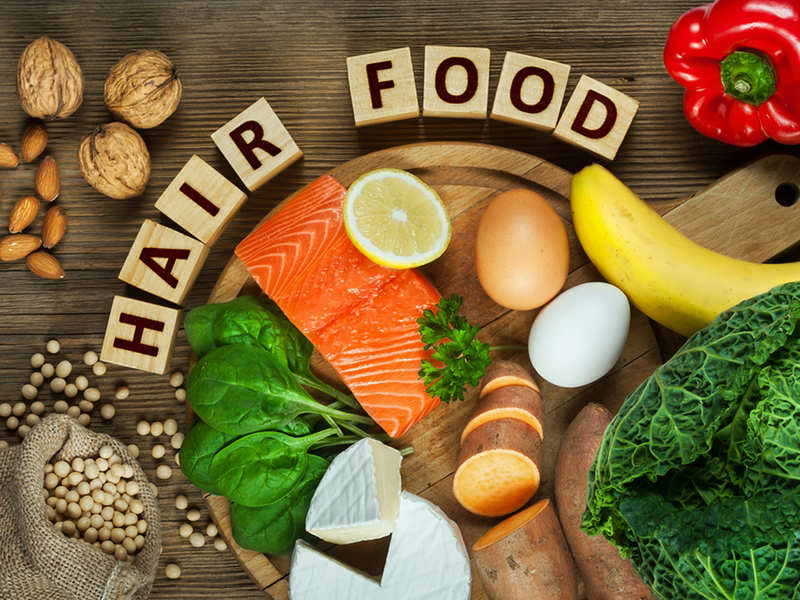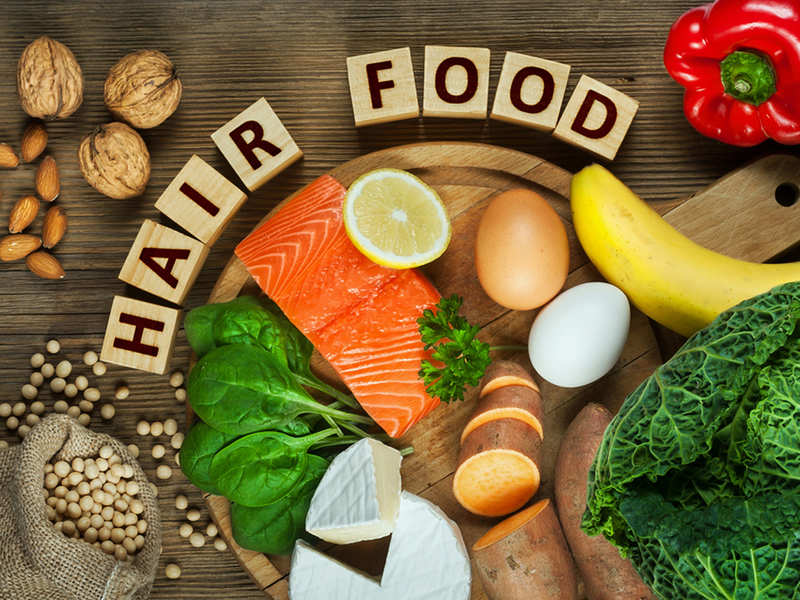If you’re over the age of fifteen, your thickest hair days are over. The goal from now on is to keep as many of those things on your head as possible. (As well as to keep its brilliance, strength, and shine.)
Although there are numerous factors that contribute to hair loss, such as genetics, age, hormones, vitamin deficiencies, toxicity, drugs, and autoimmune diseases, modifying your diet can assist in many cases. Hair loss can be slowed or reversed, and hair can become thicker and healthier with the right diet and supplements unless you suffer from baldness, which the only effective treatment is hair transplant. These nutrient-dense foods have been found to keep hair healthy and full.
1. Oatmeal
Beta-glucans are contained in abundance in oats. Soluble fibers, such as beta-glucans, are a form of soluble fiber. Insulin resistance is frequently linked to hair loss. Oatmeal, with its high fiber content, is one food that aids in the improvement of insulin sensitivity in the body.
2. Spinach
Sometimes, people, especially women, may lose their hair because of mineral deficiencies. It’s essential to make sure you don’t have any deficiencies that could be contributing to hair loss. Doctors check protein levels, iron, iron storage, vitamin D, and a number of other labs to rule out deficiencies.
Spinach is high in iron and it contains sebum, which acts like a natural conditioner for hair. The leafy green also has omega-3 acids, magnesium, potassium, calcium, and iron. All these nutrients help keep your hair lustrous, shiny, and, most importantly, out of the drain.
3. Red bell pepper
Vitamin C prevents hair from breakage and brittleness. According to a double-blind, placebo-controlled 2012 study published in the Journal of Clinical and Aesthetic Dermatology that tested an oral supplement containing vitamin C in women with thinning hair, the supplement fostered significant hair growth in women with temporary hair thinning.
Though people believe that lemons and oranges are the best sources of vitamin C, just a half of a medium red bell pepper contains 158 percent of your daily intake of the nutrient.
4. Salmon
The human body is capable of incredible things, such as converting sunshine into bone-strengthening vitamin D. However, our bodies can’t produce omega-3 fatty acids. Omega-3 fatty acids not only keep you fit and disease-free, but they also help you grow hair and keep it lustrous and full.
Omega-3 fatty acids have anti-inflammatory properties. If you have inflammation that is causing hair loss, they can help. Natural sources of omega-3s, such as salmon and cold-water fish like sardines and mackerel, are ideal.
5. Oysters
Zinc is an essential nutrient for your overall health. When you lack this mineral, you can develop significant hair loss. According to a Biological Trace Element Research study, zinc supplementation has been found to improve hair loss in women with polycystic ovary syndrome (PCOS). That’s because zinc helps the cells responsible for building hair do their thing. Oysters are the best source of this nutrient.
6. Sunflower seeds
Sunflower seeds are full of vitamin B5, also called pantothenic acid, which helps improve blood flow to your scalp and thus promotes hair growth. A Clinical and Experimental Dermatology report says that pantothenic acid deficiencies have been identified as a nutrient connected to hair loss. One ounce of the seeds contains a solid 20 percent of your DV of the vitamin.
7. Chicken
According to a study published in the Annals of Dermatology, one form of polyunsaturated fatty acid known as arachidonic acid (AA) can encourage hair development, making it thicker and healthier. Chicken is the most common source of AA in America, according to the 2005-2006 National Health and Nutrition Examination Survey (NHANES). 154 milligrams of arachidonic acid are found in a 1-cup serving of roasted chicken.
8. Beets
This vegetable is high in natural chemicals called nitrates. After being broken down in your body, these chemicals might lead to improved blood circulation, which may bring oxygen and nutrients to your hair follicles.

